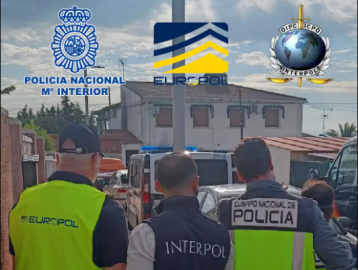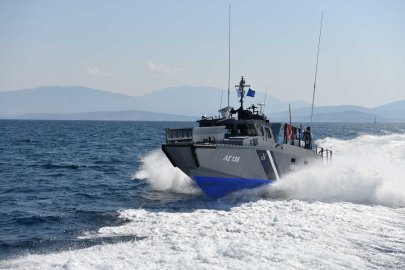62 suspected migrant smugglers arrested in Europol-Interpol crackdown
Source: InfoMigrants: reliable and verified news for migrants – InfoMigrants
According to Europol and Interpol, law enforcement agencies from five EU countries have “disrupted” an intercontinental criminal network that was reportedly smuggling migrants from Cuba to the European Union.
The coordinated raids led to the arrest of 62 people, Europol and Interpol, who coordinated the international investigation, said on Monday (July 24) in separate press releases. Authorities from Germany, Greece, North Macedonia, Spain and Serbia were involved in the operation, according to the Europol statement.
The criminal network focused on Cubans in vulnerable situations, the agencies said. The suspects, 25 of whom were Cuban nationals themselves, are accused of organizing journeys to Europe for Cuban nationals, providing fake or stolen travel documents for €9,000 per person.
In total, it is suspected that the criminal network successfully managed to smuggle around 5,000 Cubans into the EU, making a profit of around €45 million.
In addition to the arrests, which took place on an undisclosed day in June, police seized 18 real estate, 33 vehicles and 144 bank accounts, alongside “vast sums of cash in various currencies,” according to the press release.
Headquartered in the Dutch city of The Hague, Europol is the law enforcement agency of the European Union. Interpol, officially the International Criminal Police Organization, is headquartered in Lyon, France.
‘Complex criminal infrastructure’
According to Europol, the joint investigation unearthed a “complex criminal infrastructure” in cities across Spain, Greece and Serbia. The suspects were “flexible and able to adapt to changing circumstances” to sustain their illegal actions, Europol said.
The roots of the investigation go back to October 2021, when Serbian, Greek, North Macedonian and Finnish authorities reported an “increased number of Cuban citizens attempting to enter Europe with falsified documentation,” according to the press release.
While the smuggling route initially led into Finland and Central/Southern Europe from Serbia — both via Russia — the route changed to North Macedonia and Greece via Serbia and Frankfurt airport with the beginning of Russia’s invasion of Ukraine.
According to Europol, the most vulnerable of the migrants were exposed to “arduous conditions” including scams, robberies, extortion and, in some cases, sexual exploitation during their journey.
According to the UN Office on Drugs and Crime (UNODC), migrant smuggling is defined as the “facilitation, for financial or other material gain, of irregular entry into a country where the migrant is not a national or resident.”
The main difference between migrant smuggling and human trafficking, according to UNODC, is “financial or material benefit” versus the actual exploitation of the victim and their person. The deeds of the criminal network busted in June can therefore perhaps best be described as a migrant smuggling network with human trafficking elements.
The original article: belongs to InfoMigrants: reliable and verified news for migrants – InfoMigrants .



